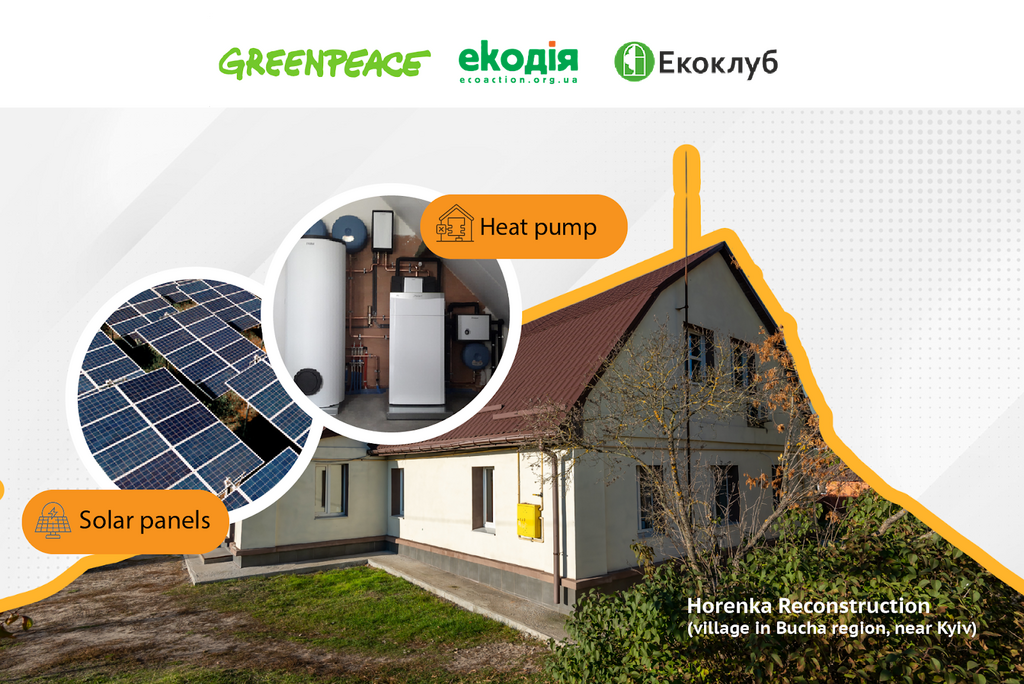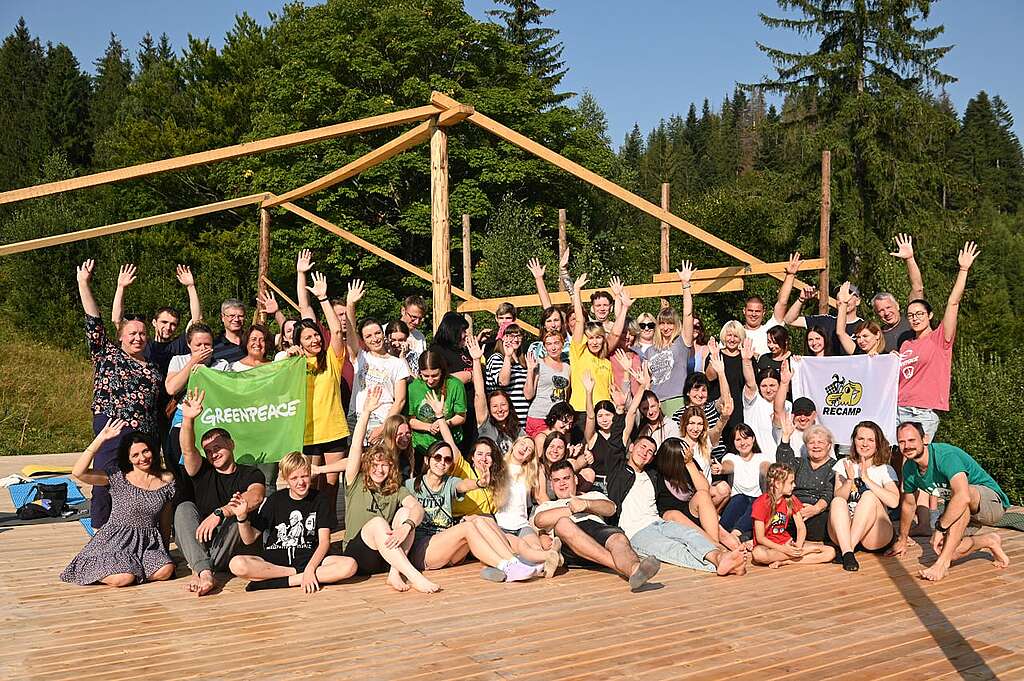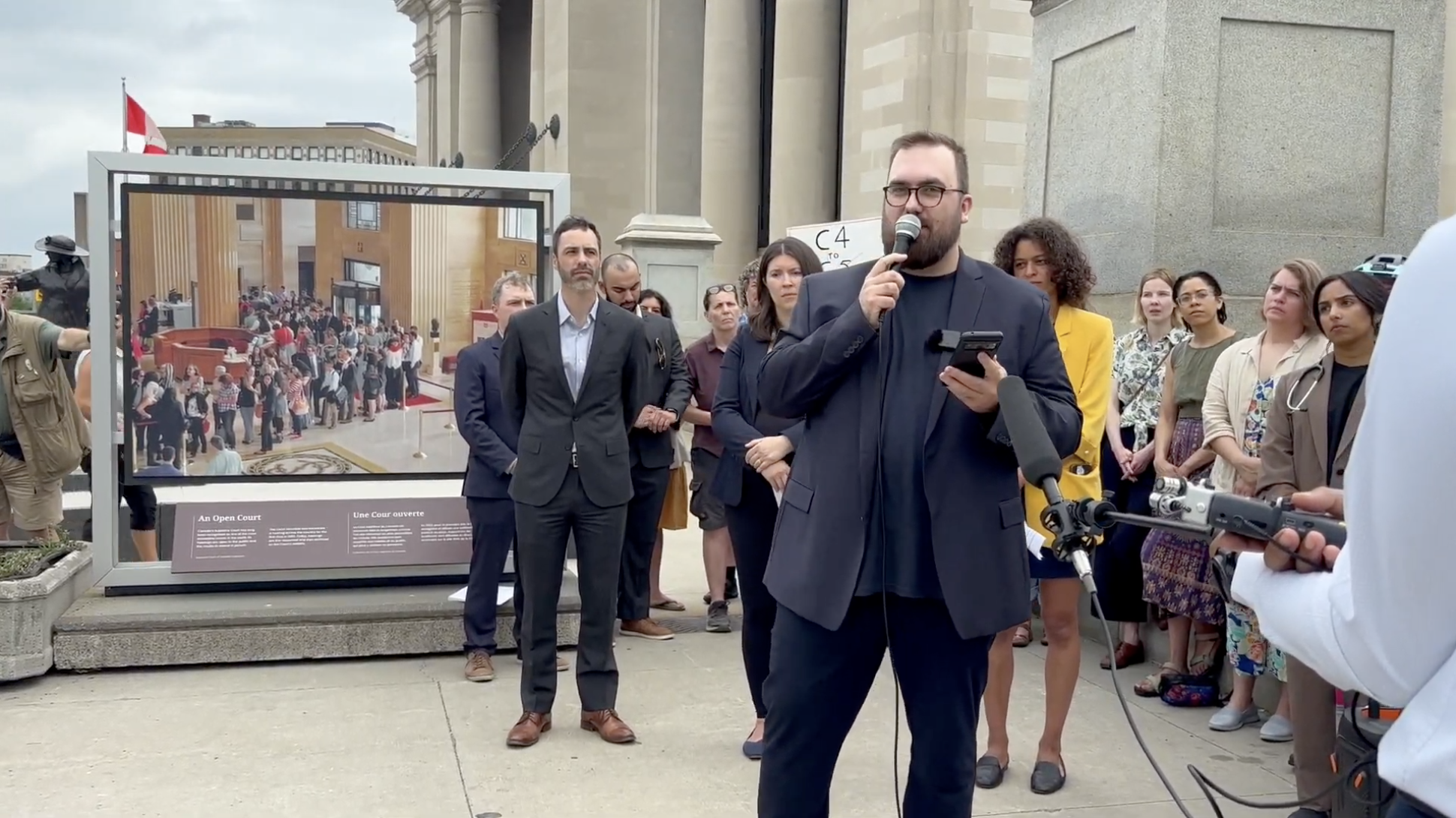Picture this. It’s a warm August evening, and you’re among a large group of like-minded people, high up in the Carpathian mountains. You’ve spent the last three days at an event called ReCamp, reimagining the future, learning about green technologies from experts, and participating in workshops.
It’s a far cry from the scene in February 2022, when a full scale war broke out in Ukraine. The Russian military devastated homes, villages and communities with all manners of horrific violence. Some Ukrainians were able to leave, but many stayed. Which meant infrastructure had to be restored in order for everyday life to continue.
Wanting to support in a concrete way, Greenpeace Central and Eastern Europe (CEE) partnered with Ukrainian environmental organizations and local authorities, and launched a project to rebuild the country sustainably: Greening Ukraine’s Reconstruction.
The overarching goal of the project is to inspire Ukrainians to become leaders in green reconstruction, and for Ukraine to become an example of green modernization worldwide. It aims to do so by restoring damaged buildings in war-torn areas of the country, and offering opportunities to share and develop green technology knowledge along the way.
“Ukrainians have already shown the world that nothing is impossible! That’s why we are inspired to rebuild our country… We also want to build a new country to inspire Ukrainians to come back from abroad,” explains Daryna Rogachuk, Communication Officer for Greening Ukraine’s Reconstruction project.

The project kicked off with the reconstruction of the local hospital in Horenka, a village in the Bucha region, in July 2022. The hospital was heavily damaged by Russian shelling in the early months of 2022, but with the support of the local municipality, the hospital was rebuilt and equipped with a heat pump and a solar power system by February 2023.
Today, the hospital can run entirely on solar power, allowing it to function during power outages—which have occurred regularly throughout the war. This has boosted the community’s resilience, all while reducing CO2 emissions.

© Greenpeace. Experts install the solar system on the roof of the reconstructed hospital in Horenka, in the Bucha region of Ukraine.
“The people in Horenka are very glad to receive a new, green hospital and they now feel confident they will have medical care during [what they expect will be] a hard autumn and winter,” reports Rogachuk. “Ukraine needs energy independence more than ever before, and green technologies can provide it. We expect new attacks from Russia on our infrastructure, but municipalities with green projects will be more prepared for these hard times.”
For many, this hospital has become a symbol of green reconstruction, and there are now more projects underway to repair war-damaged structures: two kindergarten schools and another hospital.
Beyond rebuilding, the team is also focused on developing people power, sharing knowledge and learning from others. Which is how more than 60 people found themselves in the Carpathian mountains this August, filled with inspiration and tangible plans for the future.
Organized by Greenpeace CEE, ReCamp is the first of its kind. It offered an opportunity to learn how to sustainably rebuild destroyed infrastructure, practice developing planning processes, and included presentations from experts in the field.

© Greenpeace. Participants gathered from across Ukraine to learn about sustainable building and green technologies, in the Carpathian mountains.
“The recovery of Ukraine must begin right now. This will give hope for the future of Ukrainians who need stability and a plan, in at least some areas of life,” stresses Rogachuk.
The Greening Ukraine’s Reconstruction project is proving that green technology and people power can transform infrastructure and inspire an entire country, even in the midst of war. Sustainable futures are in sight for Ukraine—and beyond. It’s only a matter of time for those mountain-top visions for the future to become reality.
You can also take pride in this incredible work. Supporters like you help support projects like this by believing that a greener world is possible and boosting our campaigns.


